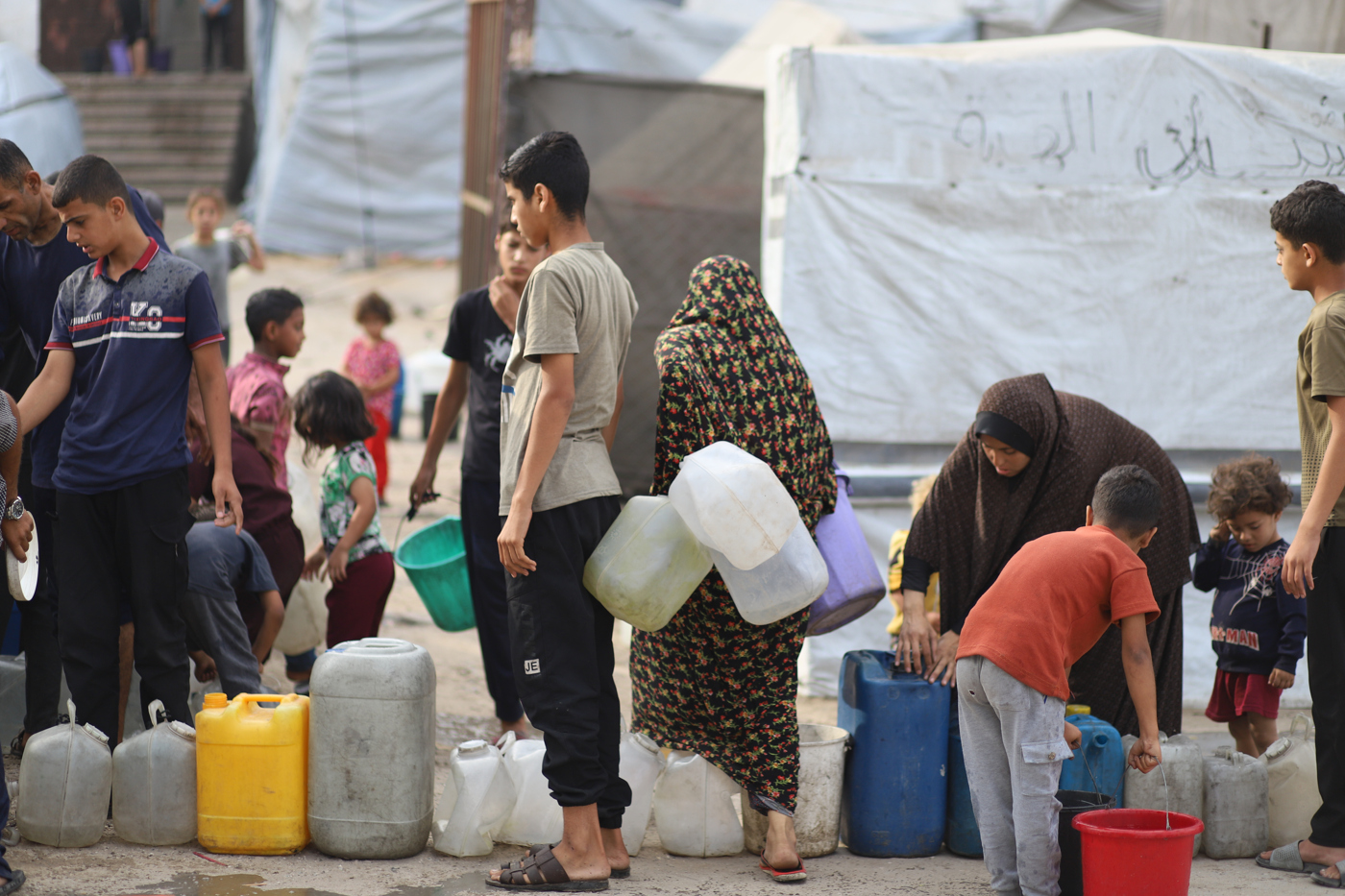“Finding food has become a deadly risk”

The crisis in Gaza has reached a point where people are forced to choose between the risk of starving to death or being shot while trying to reach the few places where food is distributed. One of those living in the middle of this reality is Abdallah Sharsharah, 34, a human rights lawyer and chair of IM’s partner organisation Ajyal for Creativity and Development. Abdallah lives in northern Gaza City with his wife and their young child.
“Physically I am well, but I live in a state of emotional and mental exhaustion,” Abdallah says.
His home in the Al-Karama neighbourhood has been partially destroyed by airstrikes. He and his family now live in the part that can still be used – in the middle of an area designated as an active war zone.
“I am not staying here because it is safe, but because there are no alternatives.”
Children sharing incubators
In his work, Abdallah witnesses the reality of displacement every day:
“The images of infants starving due to the lack of infant formula cannot be forgotten. In the hospitals, four or five newborns are forced to share a single incubator. These are scenes that haunt you for life.”
Since 7 October 2023, more than 60,000 Palestinians have been killed, including nearly 18,000 children and 9,500 women. Starvation is spreading – half a million people are now suffering from acute hunger.
Internally displaced without protection
Around 90 per cent of Gaza’s population – over 1.9 million people – have been forced to flee their homes, many of them several times. Thousands are living in tents, destroyed schools or partly collapsed buildings. Families are being torn apart, and children are repeatedly exposed to psychological trauma in the absence of any safe environment. Access to clean water, food and healthcare has all but disappeared.
“The losses are not only about housing. Families have lost belongings, documents and access to basic services. The civil registration system has collapsed – people can no longer register births or deaths. It is a deliberate erasure of people’s civil identity,” Abdallah explains.
“A deliberate starvation strategy”
Despite the acute emergency, only a handful of aid trucks are allowed in each day – far from the minimum one thousand that would be required to meet basic needs.
“This is a man-made famine, a deliberate strategy. Civilians are being killed as they try to reach the food distribution points. Since the end of May alone, around one thousand people have lost their lives in attempts to obtain food. This is a violation of international humanitarian law and must be recognised as a systematic crime against unarmed civilians.”
The humanitarian distribution points are, despite the risks, often the only places where people can access food. Yet reaching them can be fatal.
“The Israeli forces have targeted these places, either directly or through snipers and drone attacks. Finding food has become a deadly risk.”
The situation is worsened by the lack of electricity, fuel and clean water. Food that does reach Gaza often cannot be cooked or stored. In June, over 70,000 cases of gastrointestinal infections linked to spoiled food were recorded.
Survival as daily life
The economic collapse means people are forced to invent new ways to survive. Torn banknotes are mended so they can be used, hairspray is used as fuel for cooking, and makeshift clay ovens have become a source of income.
“What we call work in Gaza today is really nothing more than the struggle to stay alive,” Abdallah says.
A dream of justice
Despite the darkness, Abdallah still carries a vision:
“I dream of a Gaza where mothers send their children to safe schools, not to queues for food parcels. I dream of a homeland built on justice, not on temporary ceasefires. I dream of a future where dignity, freedom and equality apply to all.”
Photo: Abdallah Sharsharah
By: Malin Kihlström